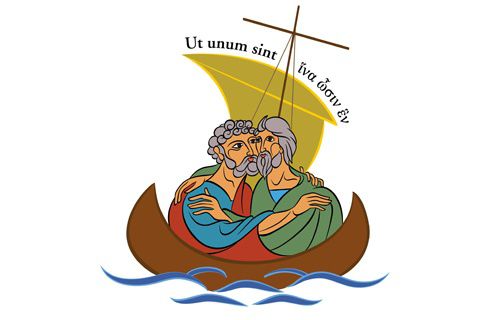Abraham Skorka, an Argentine rabbi who has long been a friend of Pope Francis, has told a Jesuit magazine of the background of their upcoming pilgrimage to the Holy Land, which will occur May 24-26. “We dreamt of being together in front of the Western Wall of the Temple of Jerusalem and to embrace … and that I would accompany him to Bethlehem, to be on his side in such a meaningful moment for him,” Skorka told Fr. Antonio Spadaro, director of La Civilta Cattolica, in an interview published May 17. Pope Francis will be joined in his Holy Land trip by Skorka as well as by Omar Abboud, a sheikh from Buenos Aires. Skorka and the Pope discussed the possibility of such a trip at their first lunch after Bergoglio’s election as Bishop of Rome. The two have wanted to underscore their special friendship as a sign that dialogue between religions is possible. “When Jorge Mario Bergoglio was elected Pope, it was clear to me that our friendship had to become public,” Skorka told La Civilta Cattolica. “It was needed, after centuries of discord between Jews and Christians, and because conflict too often wins out over dialogue.” Before their June 13 lunch, Skorka and Pope Francis recorded a joint message for an Israeli TV broadcast. “It was very short, but very meaningful,” Skorka recounted, saying that they expressed that their friendship and dialogue is a sign that Rome and Jerusalem can find peace with each other. Their joint message “considerably grabbed the attention of the Israeli population; particularly Jews,” the rabbi said. Skorka’s dialogue with Bergoglio during his pontificate has developed on two other occasions, as well. He was in Rome Sept. 25 — Oct. 2, living in the Domus Sanctae Marthae and dining daily with Pope Francis. “We spoke continuously about the relations between Judaism and Christianity,” he said. “How could we deepen the dialogue? What should the next step be? And we spoke about the opening of Pius XII’s archives, the crisis of current society and how to face it, the trip to Israel … it was a special period.” They met again in January, when Skorka visited Rome with a delegation of Jews from Argentina, speaking of their joint commitment to peace in the Middle East. “Pope Francis can focus his efforts on this goal,” Skorka said, because as the Palestinian-Israeli conflict draws “special attention”, its “worthy and just conclusion would work as a paradigm for the resolution of other conflicts” in the world. In their meetings together, Skorka and Pope Francis have also discussed about how to foster relations between Catholicism and Judaism, he said. “During my second visit to the Vatican, I asked Pope Francis what should be, in his view, the next step of Jewish-Catholic dialogue. He promptly responded: ‘Theological.’” Such a terse response is typical of Pope Francis, the rabbi said. “Given his Jesuit formation, he responded to my question, and left in my hands the development of the response.” When Skorka asked what he ought to read, Pope Francis gave him two recommendations: “The Promise,” by Cardinal Jean-Marie Lustiger, who was Archbishop of Paris from 1981 to 2005; and “Two Roads, One Redemption,” by Yoel Ben Arye. “Bergoglio sees and feels Judaism as the mother of his faith,” Skorka said. “It is not a mere intellectual perception: it is a sentiment which constitutes an important part of his personal faith.”

